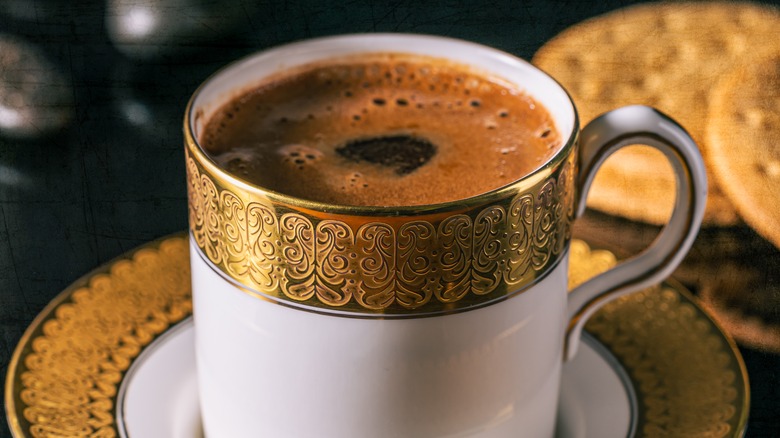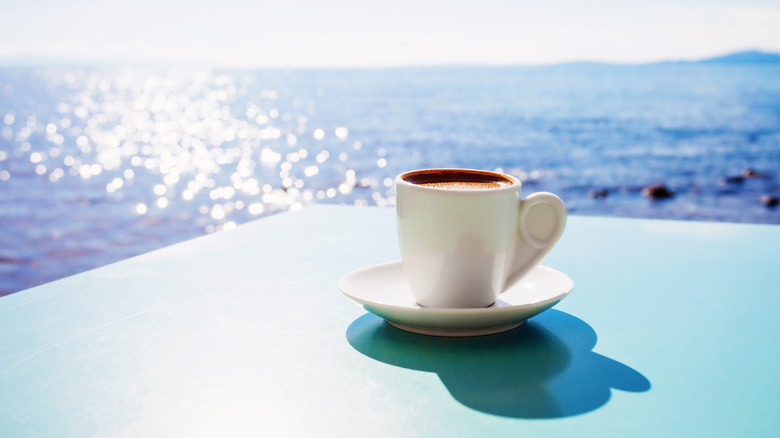Why Greek Coffee Isn't Your Regular Cup Of Joe
For those sluggish mornings that call for extra pep, Greek coffee is the ticket to a reliable burst of energy. Those concerned about coffee jitters may appreciate that Greek coffee doesn't pack as much caffeine as a regular cup of Joe. The Greek's rich pour isn't brewed like a standard cup of coffee, either. Instead, Greek coffee is boiled, leaving behind more health-boosting antioxidants and compounds in your cup, and a thin foam that arises during the boiling process adds a touch of silkiness to your morning drink.
Unlike a drip machine, there's no filter involved in the making of Greek coffee. Finely ground, powdery coffee beans are boiled in a pot called a briki. The grounds of the coffee naturally settle at the bottom of the cup in a sludge-like layer, an iconic component of a traditionally made Greek coffee that is meant to stay in the cup. If this sounds like Turkish coffee, you're not wrong: Until the 1960s, Greek coffee was called Turkish coffee, but political upheaval and tension resulted in a renaming of the beverage, and Greek coffee held fast as a name.
To make the powdery espresso grounds needed for Greek coffee, you will need a high-quality burr grinder to get the right grind. If the coffee grounds aren't fine enough, the beans won't settle into the bottle of your mug. Another key to a perfect cup of Greek coffee is a briki, a tall, thin container that boils the ground coffee beans.
Sip slowly and enjoy the good life
The boiling method to make traditional Greek coffee isn't the only difference when it comes to coffee culture in Greece. Frappes are a go-to order for many, yet the frappe you'll sip on in Athens isn't like the frappuccino you'd receive from an American Starbucks. The Greek's frappe is whipped with instant coffee, cold water, and ice. Some baristas will add a touch of condensed milk, as well. It's like iced coffee but made with instant coffee powder. The result is a whippy drink that is creamy and smooth.
It's not only how coffee is made but the way in which it is enjoyed that matters to the Greeks. In Greece, drinking coffee is a ritual to be savored. Coffee is served with a glass of water and something sweet, like a biscuit or cookie. Greek coffee is served black, without any added milk, but it is common for sugar to be added to cups even designated as black. One type of Greek coffee order known as glykys vrastros is double-boiled and doesn't have the foam layer that other frothy Greek coffees offer. Regardless of the coffee ordered, the drink is meant to be sipped slowly, in a café, and not taken on the run in a to-go cup.

